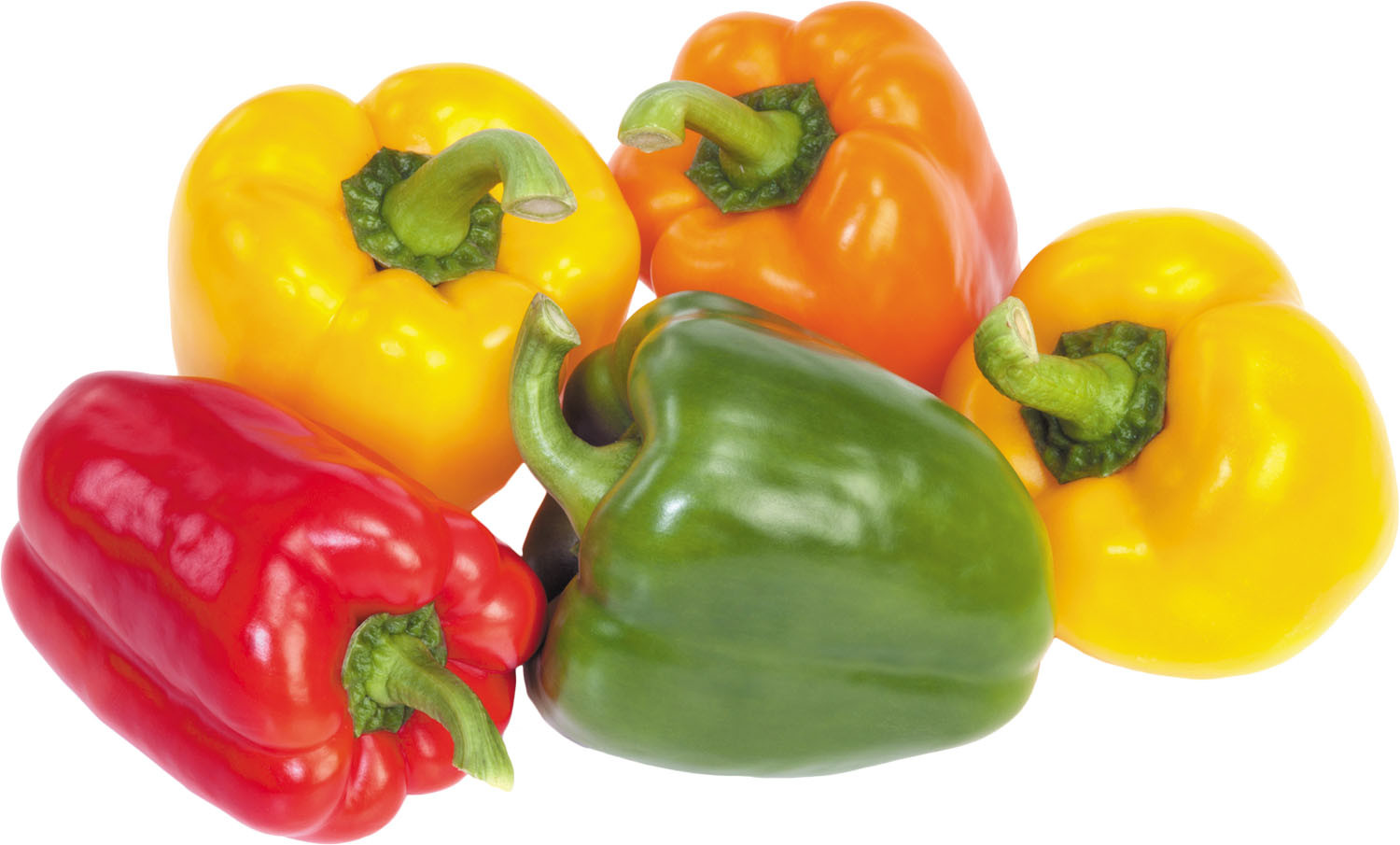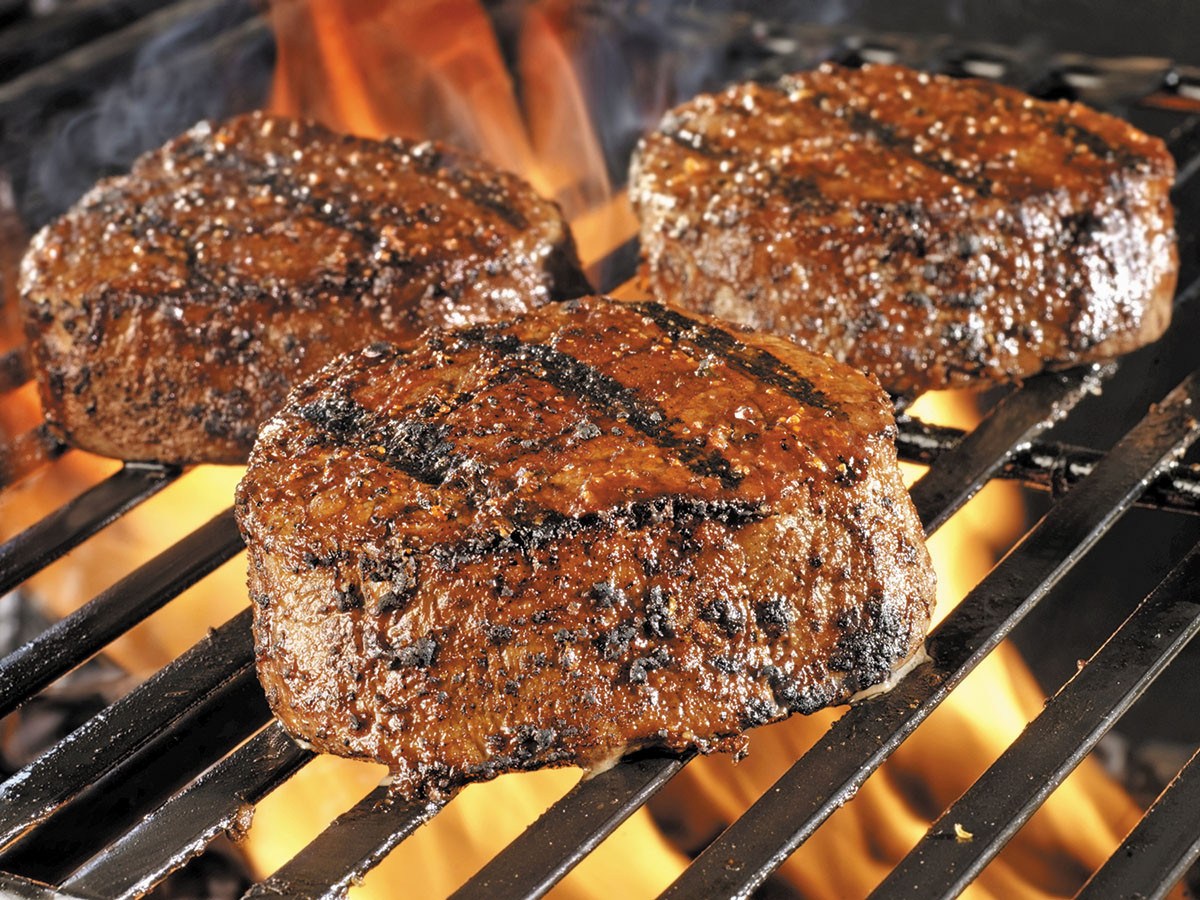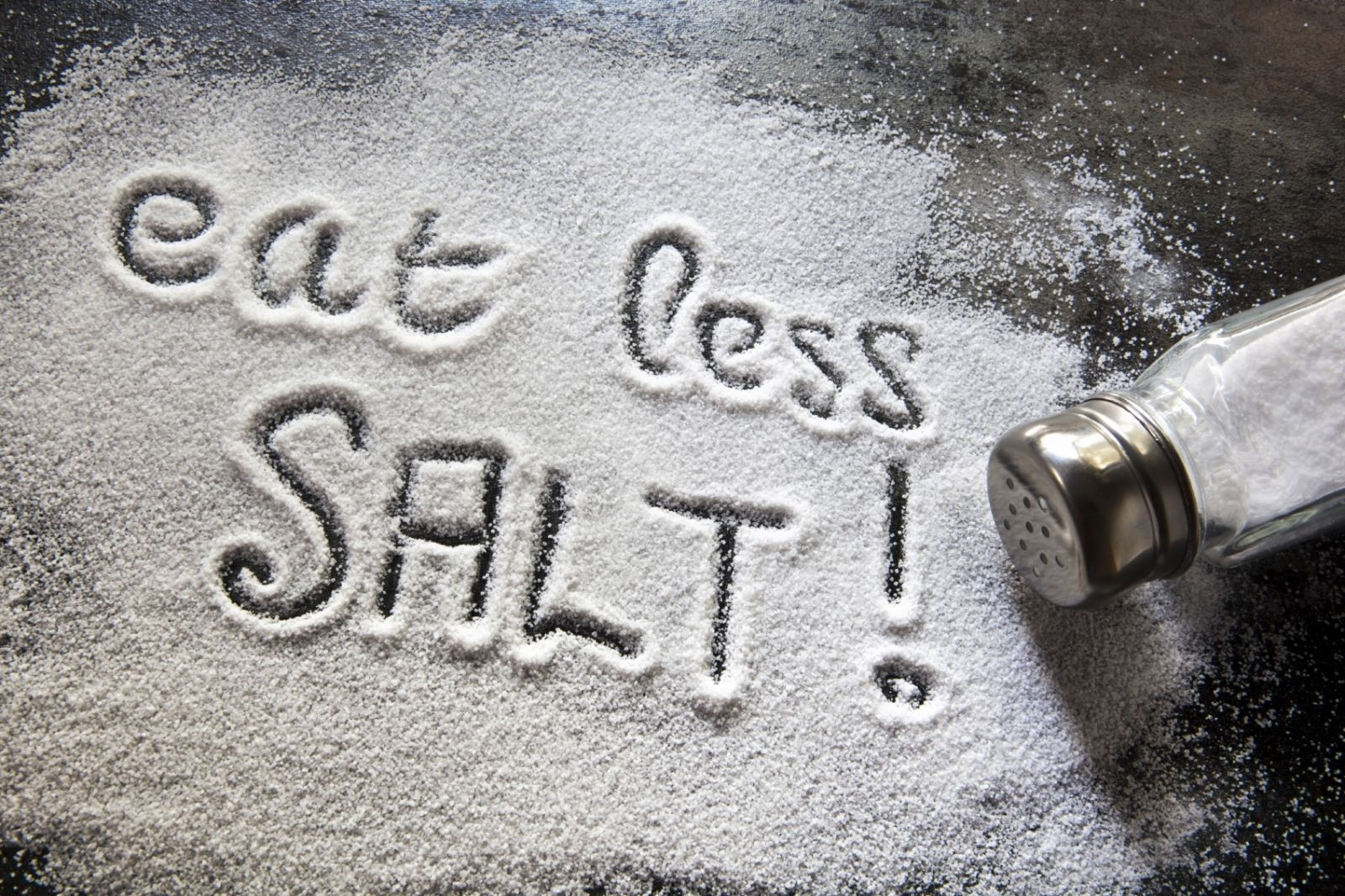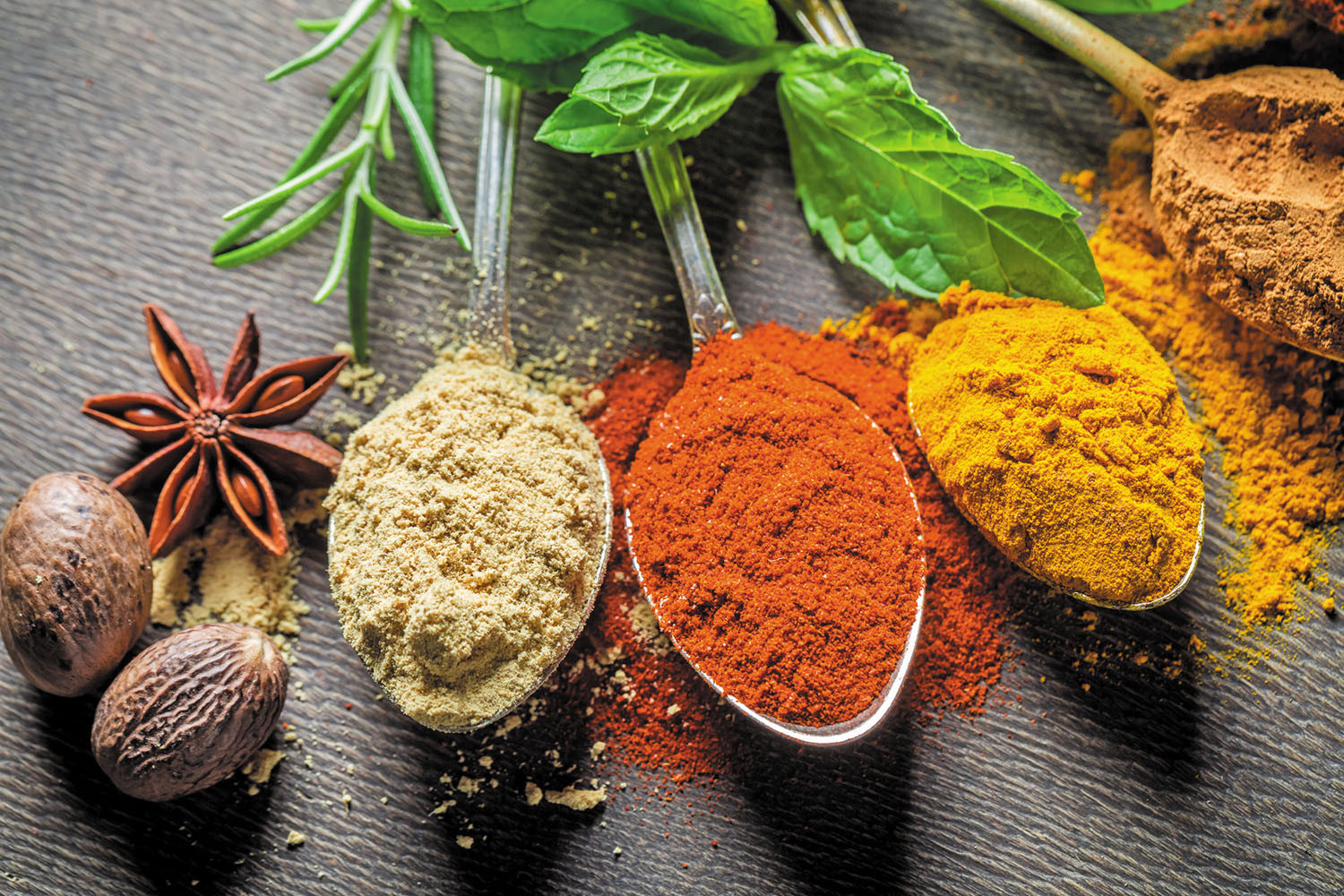
Tips to leverage neuroplasticity to maintain cognitive fitness as you age

Can white noise really help you sleep better?

Celiac disease: Exploring four myths

What is prostatitis and how is it treated?

What is Cushing syndrome?

Exercises to relieve joint pain

Think your child has ADHD? What your pediatrician can do

Foam roller: Could you benefit from this massage tool?

Stepping up activity if winter slowed you down

Common causes of cloudy urine
Controlling Your Blood Pressure Archive
Articles
Vegetable of the month: Peppers
Image: © Josef Mohyla/Getty Images
Peppers, which belong to the genus Capsicum, come in a variety of colors, shapes, sizes, and flavors. Bell peppers (available in green, yellow, orange, red, and even purple) make a nice addition to a salad or plate of crudités. Supermarkets carry bags of assorted mini bell peppers that are convenient both for snacking and using in recipes.
While sweet bell peppers are crunchy and mild, hot peppers — such as jalapeños, serranos, and habaneros — provide a tongue-tingling punch of heat. They contain varying amounts of the phytochemicals responsible for the spiciness in hot peppers.
Blood pressure goals: How low should you go?
Surprising new normal, healthy blood pressure for men by age
What's good blood pressure for men by ages? As many as three-quarters of men over 65 have high blood pressure. Many end up taking medication to prevent heart attacks, heart failure, stroke, kidney failure, and erectile dysfunction.
For most people with blood pressure clearly in the red zone, getting their numbers below 140/90 millimeters of mercury (mm Hg) is a reasonable goal. However, in December 2013, a panel of experts convened by the National Institutes of Health (NIH) released a recommendation that people over age 60 with high blood pressure could settle for a goal of 150/90—not the more stringent standard of 140/90—and still get health benefits. The American Heart Association rejected the idea, and five of the 17 members on the NIH panel later publicly dissented with the majority opinion. The debate continues.
A tipping point for developing high blood pressure?
Research we're watching
Image: © Nik01ay/Getty Images
Although conventional wisdom suggests blood pressure rises gradually as people age, that isn't true for everyone, according to new research. However, a systolic blood pressure (the top number in a reading) that regularly goes above 120 to 125 mm Hg may signal impending high blood pressure, regardless of a person's age.
The study included data from 1,252 of the original participants of the Framingham Heart Study, who had their blood pressure measured roughly every two years between 1948 and 2005. Researchers then categorized the participants based on the age at which they received a diagnosis of high blood pressure (in their 40s, 50s, 60s, 70s, or never). They defined high blood pressure by the standard at the time: equal to or over 140/90 mm Hg.
Summer grilling may raise blood pressure risk
Research we're watching
Image: © Lauri Patterson/Getty Images
Many people switch from stove to grill in the warmer months. But a new study links regular consumption of grilled meat to an elevated risk of high blood pressure. A study presented at the American Heart Association's 2018 Epidemiology and Prevention — Lifestyle and Cardiometabolic Health Scientific Sessions looked at more than 100,000 people in three different studies who ate at least two servings of beef, poultry, or fish each week.
They found that those who grilled their meat or broiled or roasted it at high temperatures more than 15 times each month had a 17% higher risk of high blood pressure than people who grilled, roasted, or broiled less than four times a month.
Noisy workplaces may boost cardiovascular risk factors
Research we're watching
Is your workplace noisy? You may want to keep close tabs on your blood pressure and cholesterol. A CDC study published in the American Journal of Industrial Medicine found that high cholesterol and high blood pressure were more common among workers who toiled in noisy environments.
The study found that 25% of U.S. workers surveyed reported experiencing noise exposure at work. The noisiest industries included mining, construction, and manufacturing.
Traffic noise linked to higher heart disease risk
Research we're watching
Image: © u_/Getty Images
Roaring jets, rumbling trains, and revving automobiles may have a detrimental effect on your cardiovascular health.
According to a review article in the Feb. 13, 2018, Journal of the American College of Cardiology, many studies have observed a connection between transportation-related noise and a slightly higher risk of high blood pressure, coronary artery disease, stroke, and heart failure. The association persists even after adjustment for possible confounding factors, such as air pollution and socioeconomic status.
5 ways to use less salt
Salt is essential to the body. The sodium in salt helps transmit nerve impulses and contract muscle fibers. It also works with potassium to balance fluid levels in in the body. But you need only a tiny amount of salt to do this — less than one-tenth of a teaspoon per day. The average American gets nearly 20 times that much.
The body can generally rid itself of excess sodium. In some people, though, consuming extra sodium makes the body hold on to water. This increases the amount of fluid flowing through blood vessels, which can increase blood pressure.
The new blood pressure guidelines: Messages you may have missed
The new guidelines set a lower target and emphasize lifestyle changes. Here's why eating less salt is important.
High blood pressure — a major cause of heart attack and stroke — recently became far more prevalent in the United States, but not because people have become suddenly less healthy. Last fall, new guidelines lowered the threshold for diagnosing the condition, which used to be defined as a blood pressure reading of 140/90 millimeters of mercury (mm Hg) or higher. Now, anyone with a reading of 130/80 mm Hg or higher is considered to have high blood pressure (also known as hypertension). Nearly half of adults now fall into this group.
Many cardiologists welcomed the updated guidelines, published in the Nov. 7, 2017, Journal of the American College of Cardiology. "The new guidelines are based upon a growing body of evidence that lower blood pressure values are associated with fewer major adverse cardiovascular events, including heart attacks, strokes, and heart failure," says Dr. Randall Zusman, a hypertension expert at Harvard-affiliated Massachusetts General Hospital. Over all, people with Stage 1 hypertension (see "Blood pressure categories") have double the risk of those events compared with people who have normal blood pressure.
To eat less salt, enjoy the spice of life
Research we're watching
Image: © Shaiith/Thinkstock
Adding a little extra spice to your food may help you eat less salt, according to a study in the December 2017 issue of Hypertension. A salty diet may raise your risk of high blood pressure, leaving you more prone to heart attack and stroke.
For the study, Chinese researchers recruited 606 people and determined their preferences for salty and spicy foods, in part by asking how often they ate foods such as salted fried pork and pickled Chinese cabbage.
Topical pain relievers may be less risky for the heart than pills
Research we're watching
The pain relievers known as nonsteroidal anti-inflammatory drugs (NSAIDs) help ease the ache of arthritis. But taking these pills regularly can increase blood pressure and worsen heart disease. Now, new research suggests that topical NSAIDs (available by prescription in gel form) may pose less risk than the pills.
Researchers tracked heart attacks, strokes, and other heart-related problems in more than 46,000 people with rheumatoid arthritis over a nine-year period. People who used topical NSAIDs (even those who already had heart disease) had fewer of these cardiovascular events than those who took oral NSAIDs, according to the study, published in the Oct. 27, 2017, Journal of the American Heart Association.

Tips to leverage neuroplasticity to maintain cognitive fitness as you age

Can white noise really help you sleep better?

Celiac disease: Exploring four myths

What is prostatitis and how is it treated?

What is Cushing syndrome?

Exercises to relieve joint pain

Think your child has ADHD? What your pediatrician can do

Foam roller: Could you benefit from this massage tool?

Stepping up activity if winter slowed you down

Common causes of cloudy urine
Free Healthbeat Signup
Get the latest in health news delivered to your inbox!
Sign Up










